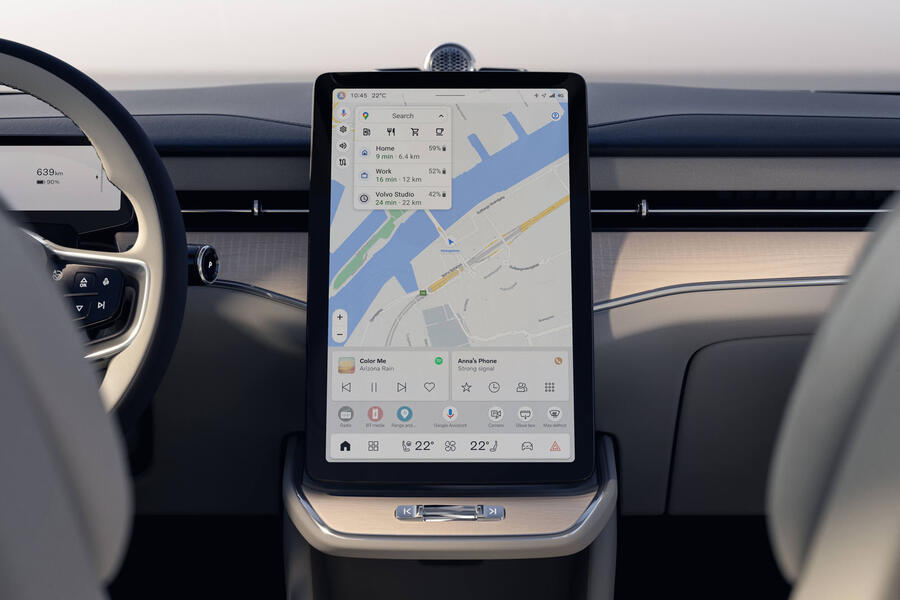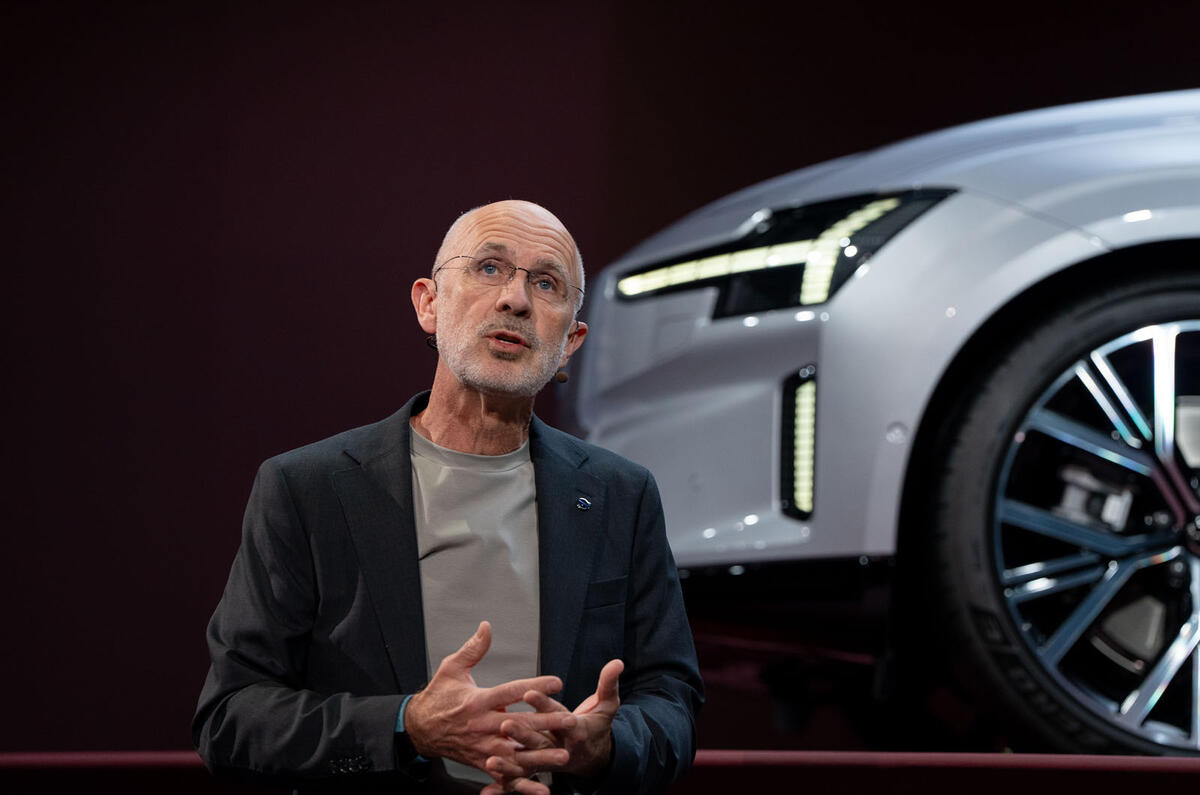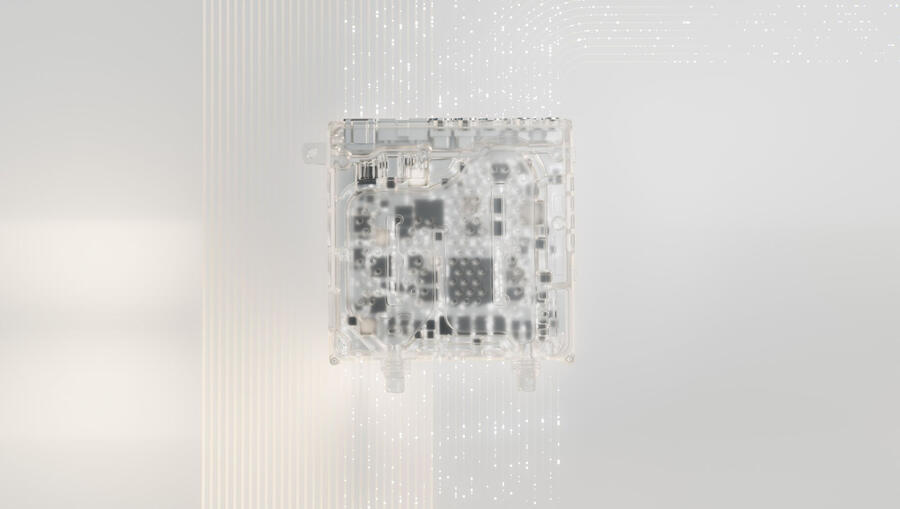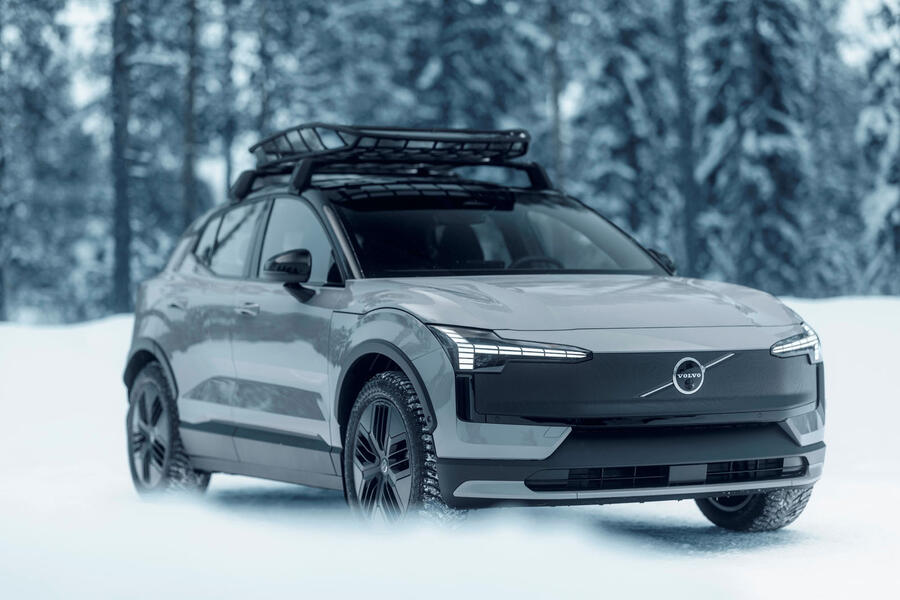Volvo boss Jim Rowan has stepped down from the firm with immediate effect, following three years at the helm of the Swedish car firm.
During his time with Volvo, the former Dyson executive oversaw the launch of the EX30, EX90 and ES90, and has been a key proponent in the company's push towards software-defined vehicles.
He will be replaced by his predecessor, Håkan Samuelsson, who previously led Volvo from 2012 until 2022.
In this interview with Autocar – his final before exiting the firm – he says car makers face a "Darwinian event", and lays out his plan for Volvo to come out on top.
“It’s not win-win. Somebody’s gonna lose”
“If you’re looking for mental stimulation and sleepless nights, then come and join the industry,” says Volvo Cars CEO Jim Rowan, who did just that three years ago this month when he moved to the automotive world from the tech sector.
Compared with other car company CEOs, he speaks in a way that makes him still seem like an outsider – or perhaps an outlier – because the way Volvo talks so openly and extensively about software stacks, computer chips and processing power remains unique among legacy car manufacturers.
Yet Rowan believes this is where the game is now at for the automotive industry and he cannot comprehend how far behind rivals seem to be in the way they present themselves and talk about electric cars as if they’re a new thing, especially when their companies’ very survival is at stake.
“I’m not an automotive guy. I come from the tech sector and I’m absolutely flabbergasted by the amount of people that still talk about electrification, as if that’s the big thing,” he says. “We know about batteries. We know about embedding the modules. We know about even silicon carbide, which was a big story all of a sudden, but that’s not a new technology. We know about power electronics and so on.”
Instead, says Rowan, the four key things for the automotive industry now are “software, silicon, connectivity and data” – and Volvo is advanced in its development of all of them. But far from this being an attempt by Volvo to reposition itself as a tech company, this tech push is at its core about doubling down on safety and ensuring its cars continue to get ever safer and more lives are saved.

“When I say software, I mean full-stack software,” he says. “You need to be able to write from layer one of the silicon all the way up to the application layer of the car in order to control it properly. There are three companies in the world that have managed to do that: Tesla, Rivian and Volvo. There’s a lot of good car companies but none of them have figured it out. It’s a big deal – and freaking hard to get this done. But we’ve stuck at it.”










Join the debate
Add your comment
Well he's right about one thing, there isn't room for all these multiple brands in the market for cars. In fact it makes me wonder why so many manufacturers keep adding and supporting 'new' brands in their portfolio. As we head closer and closer to autonomous vehicles, ultimately there'll be little interest in what brand of vehicle is driving you around, after all, does anyone really care what make of taxi, train or aeroplane they take?
Thank goodness for Volvo's sake that this guy is on his way out!
Tech geeks like him may want their cars to become iPhones on wheels but I think the vast majority of drivers do not. Do I need an app to tell me where I parked my car? No, my brain works just fine, thank you. I've never had a crash on a wet Sunday in Wiltshire. Or indeed ever in Wiltshire, or ever on a Sunday, or ever in the wet. So why have complicated software that is full of bugs to give 'valuable information' on such an unlikely event? It doesn't work, as the Volvo drivers on here have testified.
It's all just more to go wrong and line the carmakers pockets in the years ahead when the car's software is no longer 'supported' and you will have to 'upgrade' to a new car. Just like the reminders I get now on my PC to upgrade to Winows 11!